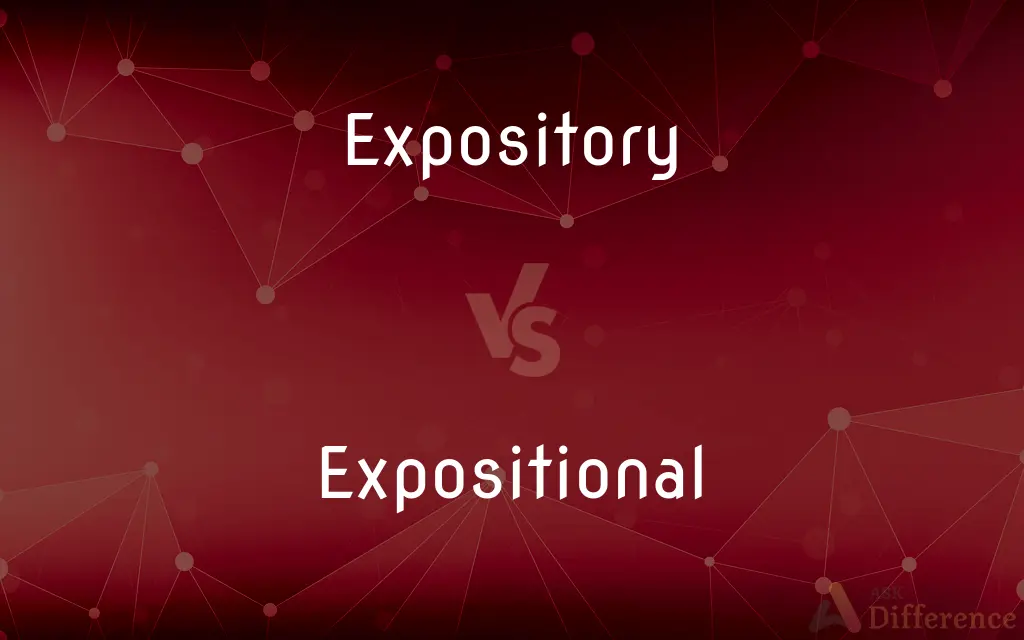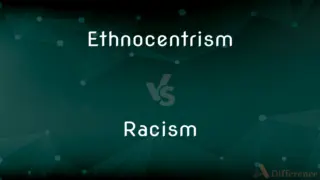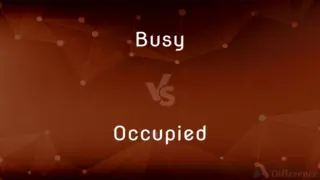Expository vs. Expositional — What's the Difference?
By Maham Liaqat & Urooj Arif — Updated on April 1, 2024
Expository writing aims to explain or inform, often using a structured, analytical approach, while expositional writing serves to set up context in narratives.

Difference Between Expository and Expositional
Table of Contents
ADVERTISEMENT
Key Differences
Expository writing is used across academic and professional fields to clarify, explain, or inform about a topic in a logical, structured manner. It often employs a straightforward, factual tone. On the other hand, expositional writing is typically found in creative works like novels, films, and television, where it provides background information necessary for understanding the setting, characters, and plot.
While expository writing relies on evidence, examples, and analysis to support its points, expositional writing may use narrative techniques such as dialogue, description, and flashbacks to weave background information into the story seamlessly. Whereas the former is aimed at educating or conveying information to the reader in a clear and concise manner.
Expository texts are characterized by their organization and structure, often following a specific pattern such as cause and effect, compare and contrast, or problem and solution. Expositional writing, in contrast, is more flexible and can be integrated in various ways throughout a story, depending on the writer's style and the narrative's needs.
In academic settings, students are frequently tasked with writing expository essays to demonstrate their understanding of a subject or to analyze information critically. Expositional writing, however, is a skill crucial for storytellers, screenwriters, and novelists, who must balance the delivery of background information without detracting from the narrative flow.
The effectiveness of expository writing is judged by its clarity, coherence, and logical structuring of information, making it accessible and understandable to the reader. Expositional writing's success, meanwhile, is measured by how well it integrates into the narrative, enriching the story without overwhelming the reader with information.
ADVERTISEMENT
Comparison Chart
Purpose
To inform, explain, or describe concepts in a structured way
To provide background information within a narrative
Presence in Genres
Academic texts, manuals, reports, essays
Novels, films, TV shows, plays
Techniques
Use of evidence, examples, definitions, and analysis
Use of dialogue, description, flashbacks, and narrative
Structure
Organized in a logical pattern; often uses headers and bullet points
Integrated into the narrative; flexible and varied
Evaluation Criteria
Clarity, coherence, logical structuring of information
How well it blends with the story, enhancing without distracting
Compare with Definitions
Expository
Expository writing clarifies or explains an idea using facts and logic.
An essay exploring the causes of climate change.
Expositional
Expositional writing can employ dialogue to reveal important plot details.
A conversation between characters that hints at a future conflict.
Expository
This type of writing is prevalent in educational settings, aiming to teach or inform.
A textbook chapter explaining the principles of economics.
Expositional
Expositional writing introduces readers to the context of a story, such as setting and character backgrounds.
A novel's opening chapter that describes a futuristic world.
Expository
It strives for objectivity, presenting information without personal bias.
An encyclopedia entry describing the history of the internet.
Expositional
It blends into the narrative, enriching the story without overwhelming the reader.
A scene in a movie where a character's past is revealed through a flashback.
Expository
It often employs a five-paragraph structure to organize information logically.
A report detailing the steps to conduct a scientific experiment.
Expositional
Successful expositional writing enhances the narrative flow, making the story more engaging.
A descriptive passage that vividly paints the setting of a novel.
Expository
Expository writing uses comparisons, contrasts, and examples to make concepts clear.
A journal article comparing two teaching methodologies.
Expositional
It varies widely in how it's presented, depending on the narrative's needs and the writer's style.
The use of a prologue to set the stage for a fantasy epic.
Expository
A setting forth of meaning or intent.
Expositional
Explained in clear terms, as in writing.
Expository
A statement or rhetorical discourse intended to give information about or an explanation of difficult material.
Expositional
Declared information openly.
Expository
The art or technique of composing such discourses.
Expository
The first part of a composition in sonata form that introduces the themes.
Expository
The opening section of a fugue.
Expository
The part of a play that provides the background information needed to understand the characters and the action.
Expository
An act or example of exposing.
Expository
A public exhibition or show, as of artistic or industrial developments.
Expository
Serving to explain, explicate, or elucidate; expositive; of or relating to exposition.
Practicing expository writing will teach you to explain complex concepts clearly.
Expository
Pertaining to, or containing, exposition; serving to explain; explanatory; illustrative; exegetical.
A glossary or expository index to the poetical writers.
Expository
Serving to expound or set fourth;
Clean expository writing
Common Curiosities
Where is expositional writing found?
In creative works like novels, films, TV shows, and plays to provide context.
Where is expository writing commonly used?
It's used in academic essays, reports, manuals, and informational texts.
Why is structure important in expository writing?
Structure helps organize information logically, making it easier for the reader to understand and follow.
How does expository writing differ from expositional writing?
Expository writing focuses on conveying information or explaining concepts in a structured manner, while expositional writing integrates background information into a narrative.
How do educators assess expository writing?
Through clarity of expression, logical structuring of arguments, and use of evidence and examples.
What is expositional writing?
Expositional writing provides necessary background details within a story, such as setting, character backgrounds, and plot context.
How do writers incorporate expositional writing without slowing the narrative?
By weaving background information seamlessly into the action and dialogue, ensuring it feels natural and relevant.
What is expository writing?
Expository writing aims to inform or explain a subject using clear, factual, and logical information.
Can expositional writing affect the pace of a narrative?
Yes, if not done carefully, it can slow down the narrative, but when well integrated, it enhances the storytelling.
Can expositional writing be found in non-fiction?
While less common, it can appear in non-fiction, especially in biographies or historical accounts that incorporate narrative elements.
What makes effective expository writing?
Clarity, coherence, and a logical progression of ideas.
What makes effective expositional writing?
Integrating background information smoothly into the narrative to enrich without overwhelming.
Is expositional writing only used at the beginning of a story?
No, it can be used throughout a story as needed to add depth and context.
Are there genres where expository writing is preferred over expositional?
Yes, in academic, technical, and professional fields, expository writing is preferred for its clarity and informative nature.
Can expository writing include personal opinions?
Generally, it focuses on factual information and analysis, though some forms may include the writer’s perspective when analyzing or interpreting facts.
Share Your Discovery

Previous Comparison
Ethnocentrism vs. Racism
Next Comparison
Busy vs. OccupiedAuthor Spotlight
Written by
Maham LiaqatCo-written by
Urooj ArifUrooj is a skilled content writer at Ask Difference, known for her exceptional ability to simplify complex topics into engaging and informative content. With a passion for research and a flair for clear, concise writing, she consistently delivers articles that resonate with our diverse audience.















































